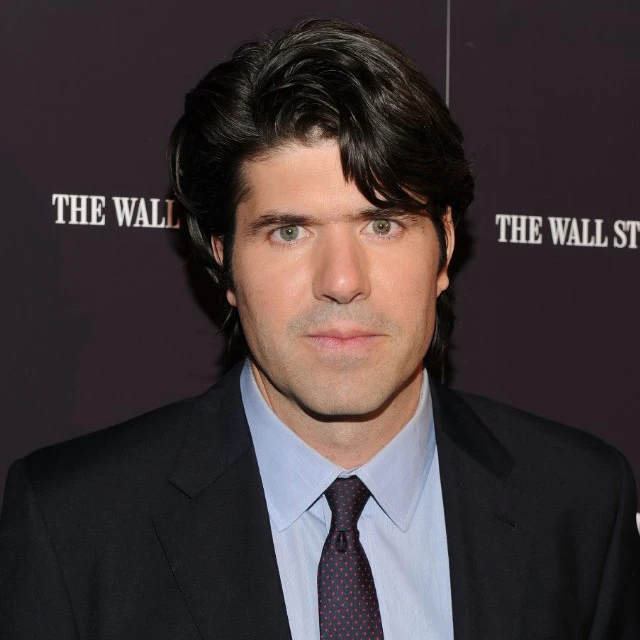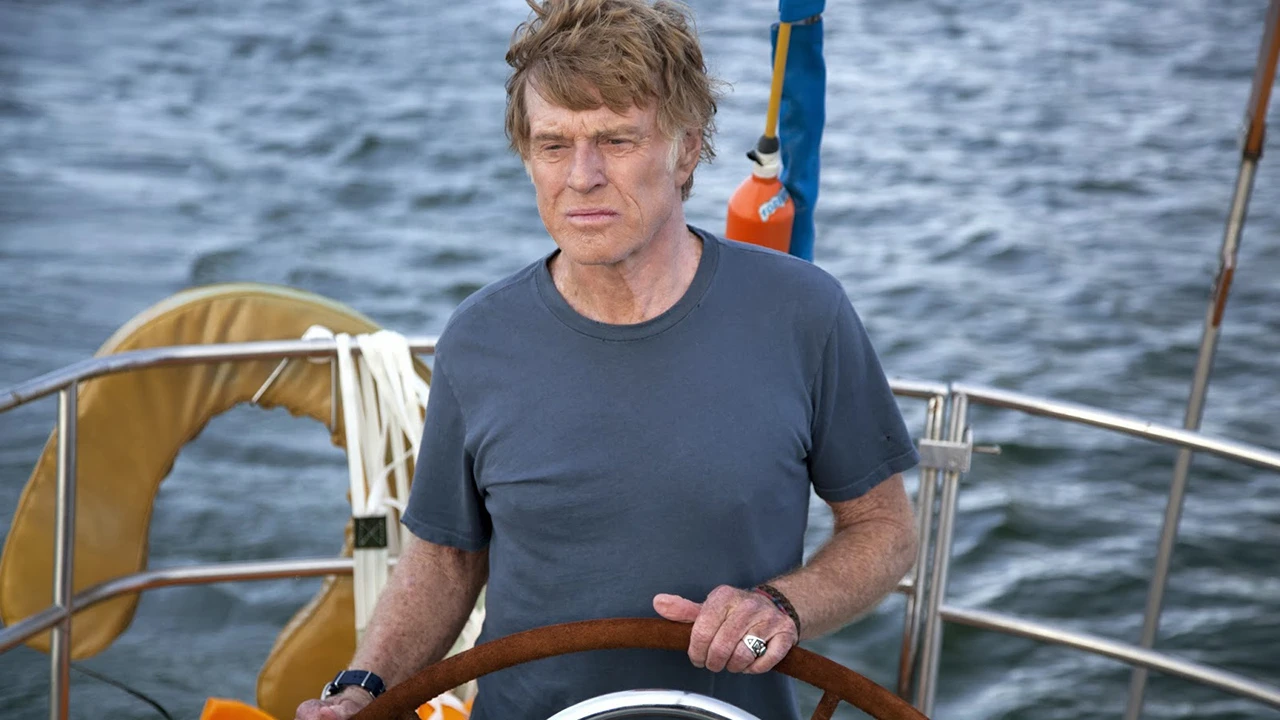Standing in the back of the annual Sundance filmmakers’ reception on a cold January day in 2011, J.C. Chandor was just one fish in a vast sea of filmmakers. His film Margin Call was about to debut at the festival, and he was waiting to see the festival’s founder Robert Redford. As Redford got up to speak, it became evident that the microphone wasn’t working. Chandor was already thinking about his next film, and seeing Redford in that moment, muted by a failed microphone and without any flourishes, made something click: Redford had to star in his next film.

Chandor, who would go on to earn an Oscar nomination for writing Margin Call, is the first Sundance filmmaker who has asked Redford to appear in one of his films. Redford met with Chandor first, in his words to “make sure he wasn’t crazy.” But the actor, director, and Sundance founder was instantly impressed with the clarity of Chandor’s vision. Redford said later that Chandor’s concept was unlike anything he had ever seen. He was in.
The resulting film, All Is Lost, which is now in theaters nationwide, tells the story of an unnamed man (played by Redford) who is at sea on his boat when he is beset by a series of challenges and must fight to survive. We never find out who this man is, or why he is here. For the duration of the film, we never meet another character. And Redford speaks only a handful of lines.

All Is Lost is only the second feature for Chandor, who wrote and directed the film. Chandor had countless offers and could have done any number of projects, but this one simply compelled him. “As a writer you can explore ideas for free,” Chandor says with a gleeful laugh, noting that such freedom allowed him to craft a movie with only “one actor, where essentially nothing happens, and he never talks to anyone.”
With just a 31-page script, Chandor was able to get the film financed, convince a crew and creative team to come on board, and attach Redford. The brief script managed to “describe everything that you were going to see,” Chandor says. “I thought that if I could keep people’s attention through a 31-page document, we could keep people engaged when it was really happening on screen in front of their faces. So my job was to extract those ideas from the script and execute them.”

A man alone at sea for an hour and a half might not seem like the most exciting thing to watch on a big screen, especially with almost all traditional sense of plotting, character development, and dialogue absent. But we’ve actually seen it, to some degree, before, with films like Cast Away, Touching the Void and this season’s Gravity, which features just two characters in space. All of these films derive much of their power from their simplicity and the heightened stakes that the “alone out there” story naturally provides.
Without dialogue, and without other characters, everything had to be communicated by Redford’s acting and the range of his emotions. Yet simple as the elements of All Is Lost may be, the process was nonetheless grueling for Chandor. Most of the filming was done out in the ocean off the coast of Mexico. Redford, who is 77, did away with the stunt double for all but one scene. He never once jumped behind the camera, despite his Oscar-winning directorial talents. Instead, throughout the shoot, Redford isolated himself to build up his character’s own sense and attitude about isolation. Chandor and the crew sometimes didn’t tell Redford that they were about to capsize the boat or introduce a giant wave in an effort have Redford as surprised as his character.
When Chandor got into the editing booth, he had a moment of crisis. The whole team was asking the question in the final days: “Is this the film?” Chandor and his team were taking a significant risk. Without dialogue or narration, would audiences understand what was happening on screen? Had they told their story sufficiently well that the film would work without traditional storytelling techniques? “We had to look each other in the face and say we’re not going to slather voiceover on this whole thing, or use the other crutches we could have put on,” Chandor says describing the tension. “Ultimately, we said: Let’s stand by our guns and make the movie we set out to make.”
As a filmmaker, Chandor may keep us guessing. From a content perspective, It’s hard to imagine two more different movies than Margin Call and All Is Lost. But Chandor is quick to say, “I like to think that a lot of good art comes from trying to accomplish something.” Chandor certainly has accomplished something here. Redford, who in his long career has never won an Oscar for his acting work–his last acting nomination was for The Sting in 1972–is now receiving Oscar buzz based on his performance in All Is Lost. A number of critics have called it the best performance of his career. In only his second film, J.C. Chandor may help deliver Redford an Oscar nomination (or more, come next March), for playing a man with no name and only a handful of lines.
Recognize your brand’s excellence by applying to this year’s Brands That Matter Awards before the early-rate deadline, May 3.
